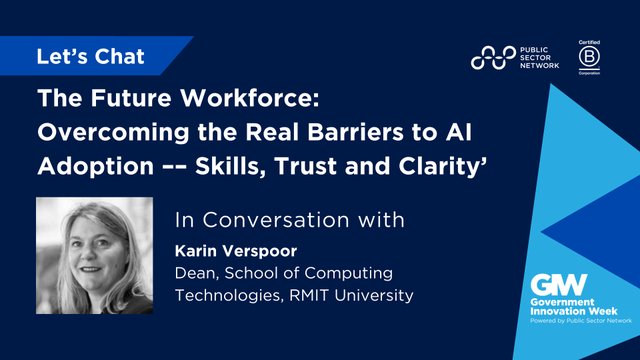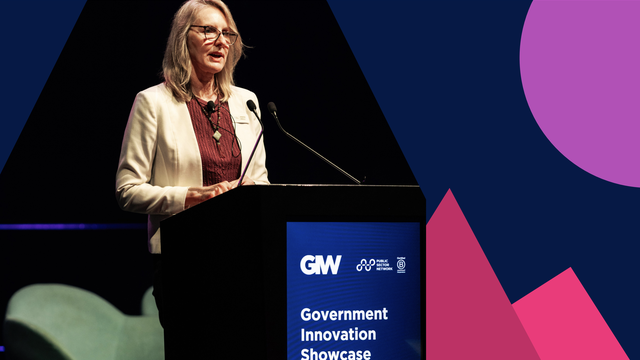
Highlighting Women Working in Healthcare
In honor of International Women's Day, we felt it was important to feature women in healthcare, particularly in light of recent events. Given the tremendous commitment, endurance, and patience required to serve on the front lines of the healthcare system, we approached several hospitals to identify individuals within their organization who are making a positive impact in the lives of others on a daily basis. We sent them a few questions to answer, their responses infused us with energy and enthusiasm, and we trust they will do the same for you!
What is your greatest career accomplishment to date?
My greatest career accomplishment to date was when I stepped into the role of Clinical Leader of Operations on the Garron Centre. Being a Clinical Leader was never something I thought I would be capable of (or even thought I’d want to do!). Even being considered for the role was overwhelming and I doubted myself and my abilities. I decided to take a leap of faith and I’m happy I did! Every day I learn, grow and challenge myself and I’m proud of how far I’ve come.
Bailey Robinson, BScN, CPMHN (C), RN, She/Her, Clinical Leader of Operations, Garron Centre - Mental Health and Addictions

Being an Indigenous Nurse is one of my biggest and proudest achievements. Because Canada’s history and thus society is built on a systemically racist foundation, due to colonialist perspectives, systemic violence, cultural assimilation, and essentially genocide, my people were not supposed to flourish- let alone obtain post-secondary achievements or work their way up to leadership positions. However, the seeds of my ancestors are strong and resilient, and I am paving the way for future generations of Lnu’k to become whatever they want to become, because we too, are just as intelligent and innovative as our dominant counter-parts and are genetically equipped with Indigenous worldviews and thus inherently have an entirely different lens when it comes to healthcare in a way that is more wholistic and culturally sound.
Courtney Pennell Indigenous Health Consultant, IWK Health (Proud Mi’kmaw RN, MScN Candidate Dalhousie University)
How did you get started in Healthcare and what is your favourite part of your job?
By the time I went back to school for Nursing, I felt it was important to do work where I would be of service to others. My first nursing position was in adult mental health in Ontario. I have always found mental health units to have incredibly supportive work environments. I love that I can work more independently now and see the results of my work while working closely with EMHAS, Psychiatry and ED staff.
Liz Joyce, Registered Nurse, Emergency Mental Health and Addictions Service (EMHAS)

Strangely enough, nursing wasn’t really on my radar when I was I was considering what I wanted to do after high school. It wasn’t until my second year of university that I decided to pursue a career in healthcare. I’m not sure what exactly influenced this change but I realized I wanted a job providing and promoting both emotional and physical health. I already had a science background so nursing suddenly seemed like an incredible career opportunity. I transferred programs and graduated from university with a BScN. Since then I have worked in General Surgery, Pediatrics, and Mental Health and Substance Use.
My favourite part of the job is the opportunity to connect with clients/patients; to determine what their needs are and how those needs can best be met and supported in both a medical and a psychosocial way. It is such a privilege to provide support to people in the vulnerable states they are in when seeking health care. I think this emotional reward is what draws a lot of people to nursing, it is what keeps me in this field when the emotional realities of the profession get heavy.
Claire Mitchell, Addiction RN, Vancouver Coastal Health
What strategies do you use to stay motivated and engaged in your work, even when you encounter setbacks or difficulties?

There are a few strategies I use to keep myself motivated, engaged, and happy in my work. I often remind myself of my purpose; to support the families and children achieving their goals. That is what led me to work in Healthcare. Lately, I think about a quote by Desmond Tutu, “If you are neutral in situations of injustice, you have chosen the side of the oppressor”. It continues to resonate with me as I advocate alongside families and staff. This helps me to keep moving forward even after a major setback or emotionally taxing scenario. Another strategy I learned is one from a close friend; to ask myself “will this matter in 1 week? One month? 5 months? One year?”. It helps to put situations into perspective, and grounds me. If I just need a quick pick-me-up, I listen to the songs “Hypnotize” by Biggie Smalls or “Don’t Stop Me Now” by Queen.
Saholy Mevamanana (she/her French: Elle), MSc. OT Reg. N.S., Provincial Trainer in Early Intensive Behavioural Intervention (EIBI), IWK

Remaining hopeful that the everyday work in front of you makes an impact, and not losing sight of the connection between what you are doing and the bigger picture. Having worked in health systems in Canada and within international health settings, it can become easy to lose sight, lose hope in change when there are deficits in infrastructure or systems not able to meet the needs of vulnerable populations. And so for me, the ability to remain engaged in the “everyday” care and advocacy, while keeping the vision and hopefulness that those small gains are often the catalyst for broader system changes.
Laura Callaghan, MN, NP-Pediatrics, Mental Health Addiction Program, Youth Forensics and Newcomer Mental Health
IWK
How do you define success in your career, and what do you hope to achieve in the years to come?

As a clinician and PhD student with a disability success in my career is to dream big, believe anything is possible, overcome and learn from obstacles, break barriers, and never give up. I have felt and witnessed the invisible impact of ableism and therefore, I hope to facilitate awareness about and challenge oppressive practices that will lead to more accessible and inclusive approaches where people with disabilities will feel valued for their professional contributions.
Jaime Blenus B.A, TRS, MScOT, OT Reg(NS), Clinical Occupational Therapist, IWK
Interested in more Health and Human Services insights? Join us at our upcoming Healthcare Roadshow happening this May!

































